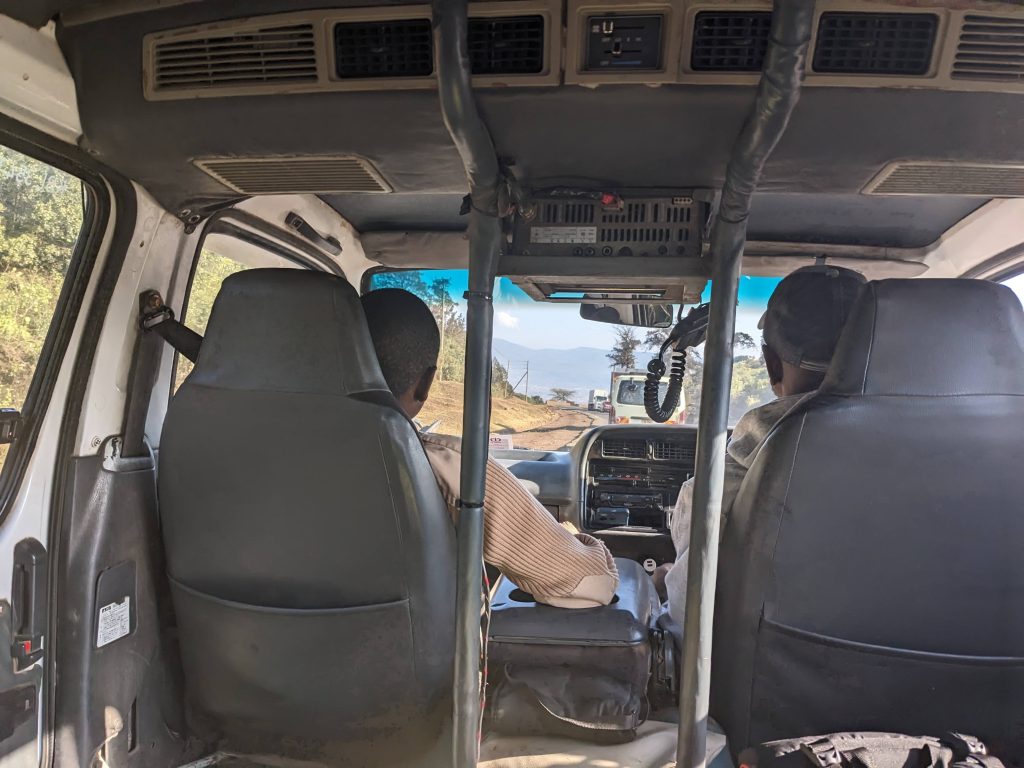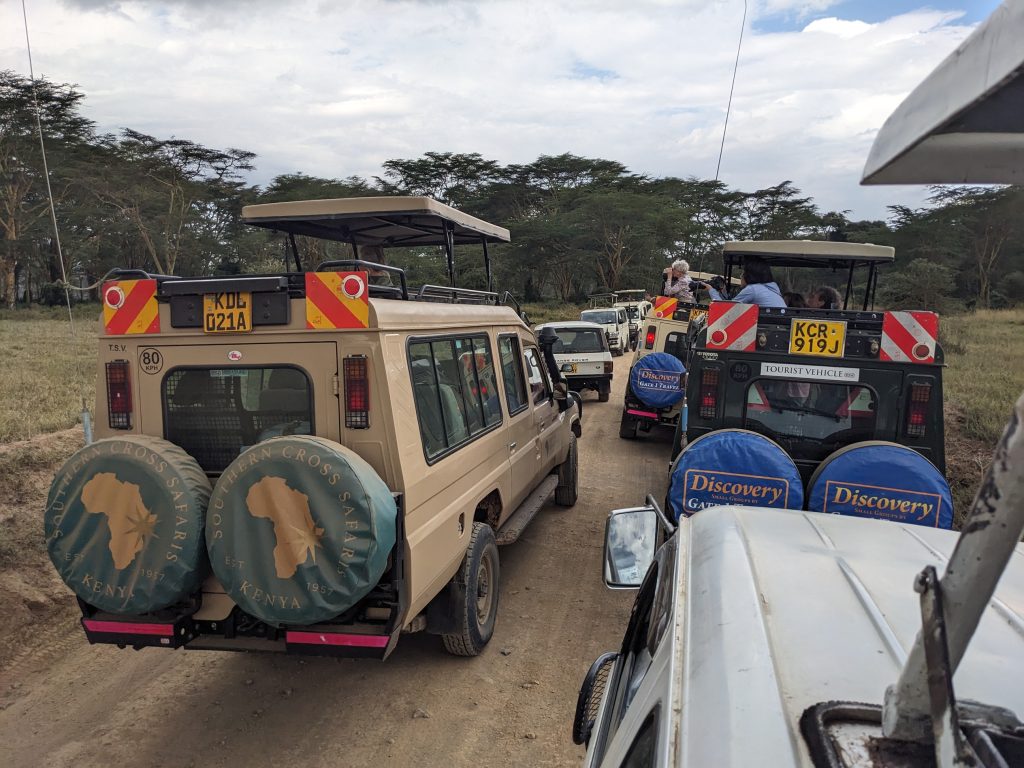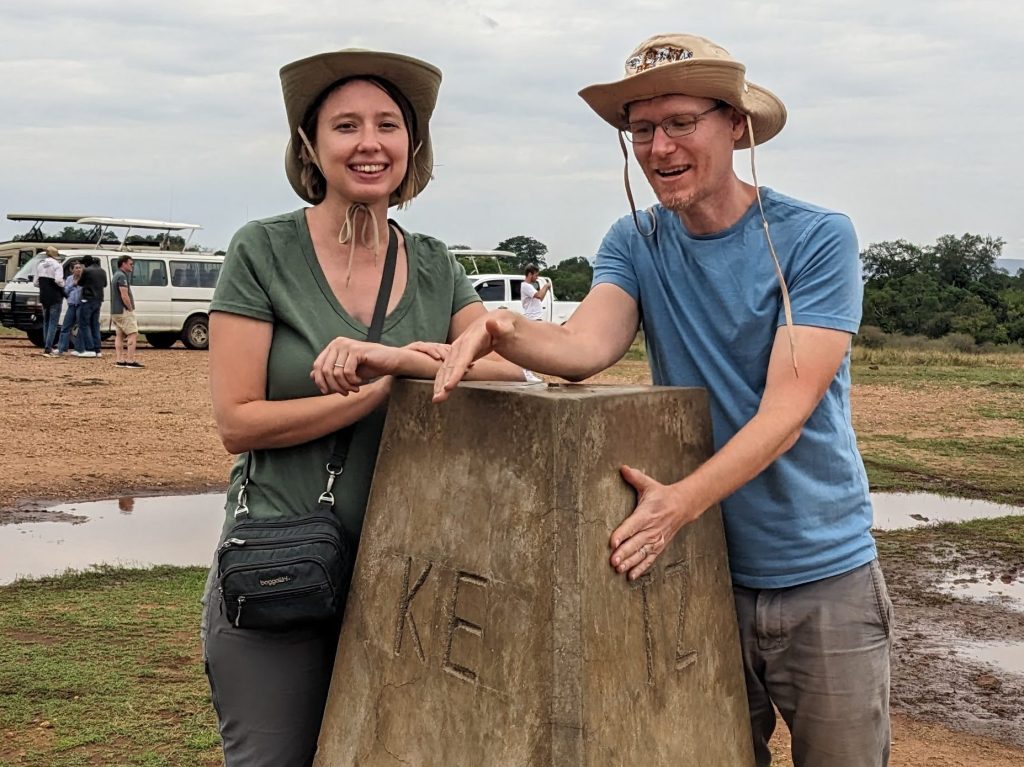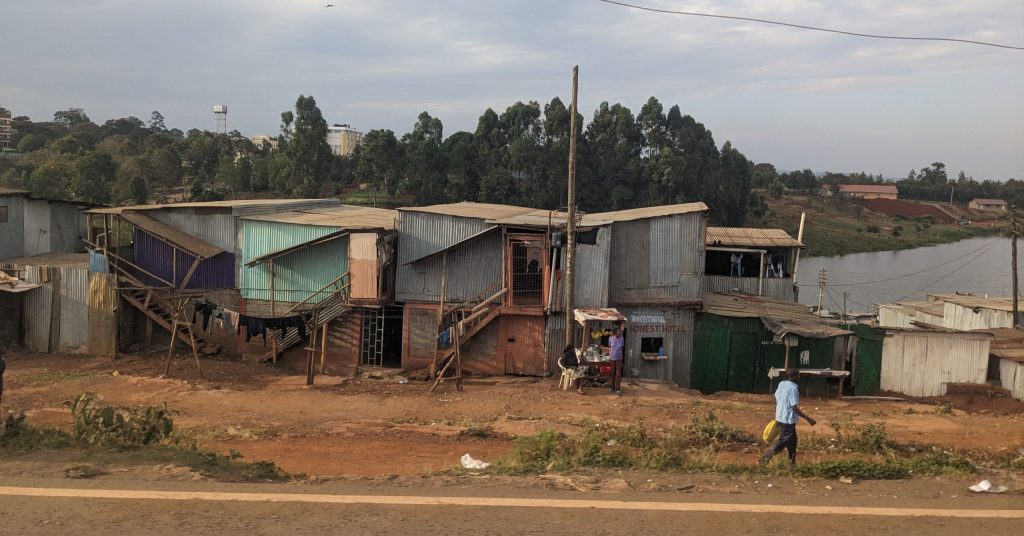I am so happy that we were able to do our safari. It is an experience I’ll never forget and is something I’d absolutely do again, hopefully with my sister one day. But I have to admit, there were times on the safari when I had qualms. Simply as food for thought, I want to share the most prevalent times of doubt I had here, in no particular order:
1) When I realized how little our tour team must get paid
Our private safari was shockingly affordable, especially when considering how much of the cost would go to the national parks and reserves. It also included all our meals and lodging. And while I knew we’d have a private guide/driver, I was surprised to learn we’d have a second person with us for four full days too as our cook. Thinking about what I knew of the set costs, I realized there wasn’t a huge margin left over for the safari company to pay wages to their employees making our safari possible.
I don’t like to speculate about how much money other people make, and I know average salaries in Kenya are far, far less than in the U.S. And people can live comfortably here on those lower salaries. But we also heard (and saw) many of the economic struggles average Kenyans face and heard about the income inequality that exists here (frequently due to corruption). It was hard not to feel like we were taking advantage of their low wages to enjoy our budget safari.
Chad and I tried to mitigate this by being very generous with tips, especially for Zack and John (who deserved every shilling and much, much more!). And I recognize this is not unique to a safari. Much of the time when we travel, we’re benefiting from our privilege of spending our U.S.-level wages in parts of the world that are not as wealthy. But it felt closer to home on the safari.

2) When we and many other safari vehicles had animals surrounded
I have to admit, my first thought when we pulled up to the cheetah chowing down on some kind of prey at Maasai Mara National Reserve was “wow, how cool.” But my second thought soon after was, “I wonder how this cheetah feels about being completely surrounded by safari vans and jeeps?” Honestly, the cheetah didn’t seem particularly concerned about having an audience. She was seriously enjoying her meal. But I also know wild animals generally prefer to be left alone.

Our lion encounters also raised questions. The vans and jeeps were able to pull right up to where groups of lions were resting. This includes the first three lionesses we saw at Lake Nakuru National Park who were right next to the road. We never got close enough for a clear photo there because there were so many other vehicles there. But the lionesses had to have known the road was there when they chose that spot to rest. But for most of the groups we came across, especially the one with the cubs, the lions would lift their heads to look every time a new vehicle approached. This seems like it would be disruptive, but then again, I never saw any animal try to get away or avoid the vehicles (except the wildebeest; they were definitely more skittish).
All the same, I am certain that having safari vehicles driving around you and/or parked nearby while you eat or rest is far less disruptive than having your habitat destroyed by development. And there’s no doubt that development is a risk for many of these places. Zack showed us at Lake Nakuru National Park how building projects were already beginning to encroach. And money from safari fees helps keep these areas preserved. But the animals don’t understand that and I really hope they weren’t too disturbed by our presence near them.

3) When I considered how much gas we were using to drive around all day, every day
No question, my least favorite part of the safari was how much driving we had to do. We drove for several hours from Nairobi to Lake Naivasha then another to Lake Nakuru. The drives to and from the Maasai Mara were nearly a full day each (seriously, like 6 hours). And when you’re on safari, you drive round and round and round, frequently on rough roads, in search of the next animal sighting. So at a certain point I couldn’t help thinking, wow, safari must use a lot of gas.
It seemed ironic to be burning so much fossil fuel to try to connect with nature. And of course, the carbon emissions from our game drives probably don’t even touch those from our long, long flights to get here. Although, most activities take an environmental toll and I’m not sure whether a safari is that much worse than most other vacations abroad. And unlike many other activities, for most people it’s something you do only once, or at most a few times, in your life. But during safari, I definitely felt myself being a polluter, especially since we chose the private safari option so there was only Chad to share my carbon footprint with (that said, I’m so glad we weren’t with a group; even knowing the environmental impact of everyone being in their own vehicle, I still prefer it).

4) When people told us how much they want to come to America
One great thing about safari is you get to interact with a lot of local people. We were always asked where we’re from and universally the response to finding out we’re American was very positive. People in Kenya seem to LOVE the United States. And over and over again, we were told of dreams to visit or, ideally, to work there for a few years.
We’ve heard this often in other parts of the world as well. But the U.S. is VERY difficult to get into, even on a tourist visa. There’s a whole application process and you have to prove a certain level of savings on top of being able to pay your trip costs. As Americans, Chad and I can be welcomed in 183 different countries with either no visa or a very simple application process (essentially visa-on-demand). But the people who live in most of those 183 countries (and the dozen-plus others in the world) are not so easily welcomed into the U.S., even as tourists.
Frankly, it’s not fair. And while this isn’t a new lesson for us, hearing some of the tribulations of the application process brought it home again.

5) When we came face-to-face with extreme poverty
Poverty exists in the world whether we see it firsthand or not. And I honestly believe there is value in being a witness to it, in the building of our own empathy if nothing else. But it is really hard to see.
Of course, it’s even harder to live, so I am not complaining. But seeing the immense poverty that is present in Kenya raised questions again about spending so much on fun things like a safari versus directing more of our resources into philanthropy. This question is best covered by the effective altruism movement, which I’m a huge fan of. You can download the short book The Life You Can Save by Peter Singer for free at this website if you want to learn more about effective altruism.
For several years, Chad and I have chosen to make our largest donation of the year to an organization called GiveDirectly that provides direct cash payments to very poor people. In fact, they have a very strong presence in Kenya, which I believe is where much of our past support has gone. Although I’m usually a “where needed most” donor, this year I plan to ask that our gift be earmarked specifically for Kenya in honor of our time here. I hope in the future we’ll be in a position to give more generously. Having spent my whole career in nonprofit fundraising, philanthropist is my dream job.

Summary
Despite those doubts, we loved our safari and I’d recommend it to anyone. It’s disturbingly easy to rationalize each doubt with the classic “upsides” of tourism: tourist money in the parks helps keep them from being developed, tourist money elsewhere brings jobs and better infrastructure, we can offset the carbon footprint of transit through charitable giving, meeting people from other countries increases empathy and makes the world feel more connected. These upsides are real and I hope we’ve been a positive presence in Kenya overall.
More than anything, I just feel extremely lucky to have been able to have this experience and to have enjoyed our safari so much. I don’t take it for granted.